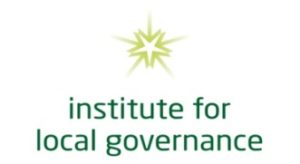 Professor Fred Robinson is working with Professor Keith Shaw of Northumbria University on a new study looking at structures and processes of governance in North East England. They will be finding out who runs public services in the region and assessing how accountable they are. They will be looking at different models of governance — some elected, others appointed. And they will be asking what works best and how we can make governance better.
Professor Fred Robinson is working with Professor Keith Shaw of Northumbria University on a new study looking at structures and processes of governance in North East England. They will be finding out who runs public services in the region and assessing how accountable they are. They will be looking at different models of governance — some elected, others appointed. And they will be asking what works best and how we can make governance better.
It’s certainly a timely project. There is considerable disenchantment with the people who run things. Many people distrust elites, politicians and the ‘establishment’. There are widespread feelings of powerlessness and alienation – as the EU Referendum demonstrated. But there is no simple answer to the problems facing us. Electing people to run things like Councils or the Police seems attractive, but turnouts are so low that there’s really only limited democratic legitimacy. Appointing people to run services – the boards of NHS Trusts, or the Governing Bodies of universities, for example – may bring in expertise, but can be seen to be about recruiting the ‘usual suspects’. And referendums — making decisions by asking the people — don’t seem to work all that well either.
run things. Many people distrust elites, politicians and the ‘establishment’. There are widespread feelings of powerlessness and alienation – as the EU Referendum demonstrated. But there is no simple answer to the problems facing us. Electing people to run things like Councils or the Police seems attractive, but turnouts are so low that there’s really only limited democratic legitimacy. Appointing people to run services – the boards of NHS Trusts, or the Governing Bodies of universities, for example – may bring in expertise, but can be seen to be about recruiting the ‘usual suspects’. And referendums — making decisions by asking the people — don’t seem to work all that well either.
Fred and Keith want the research to inform, but also to be the basis for challenge and reform. They’ve looked at these issues before, back in 2000, when much o f the concern was about unelected quangos. They helped influence the debate then – institutions in the region started thinking more about the gender balance (or lack of it) on their boards and the need to have representation from BME communities. Since 2000, some things have changed for the better – but there’s certainly room for a lot more improvement. Many institutions are still dominated by the ‘male, pale and stale’.
f the concern was about unelected quangos. They helped influence the debate then – institutions in the region started thinking more about the gender balance (or lack of it) on their boards and the need to have representation from BME communities. Since 2000, some things have changed for the better – but there’s certainly room for a lot more improvement. Many institutions are still dominated by the ‘male, pale and stale’.
The project has secured funding from the Joseph Rowntree Charitable Trust, the Institute for Local Governance and Newcastle-based Law firm Muckle LLP. It started in September 2016 and will run for a year. It’s a practical project, which aims to encourage better practice and make governance more accountable, transparent and representative.
The final report can be found Who Runs the North East Now — Main Report Oct 2017 FINAL (2).
